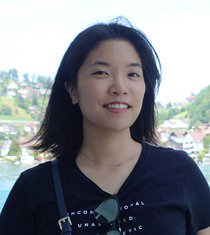As an Information Controls Fellow, Shinyoung worked with the University of Massachusetts-Amherst to study and improve the hegemony of the Tor network.
The Tor network relies on volunteers to run relays in order for it to operate. If a large percentage of relays are operating on the same network, network-level adversaries can correlate the traffic of Tor users – jeopardizing their anonymity. While the number of Tor relays in the Tor network has grown to nearly 285% over the last 10 years, the number of Autonomous Systems (AS) in the network has increased at a much slower rate. The applicant worked with UMass-Amherst to quantify which ASes are most relied on when entering and exiting the Tor network – informing the design and development of a secure exit selection algorithm that aims to minimize the probability of attacks. Shinyoung also worked with the Tor Project to explore integration.


